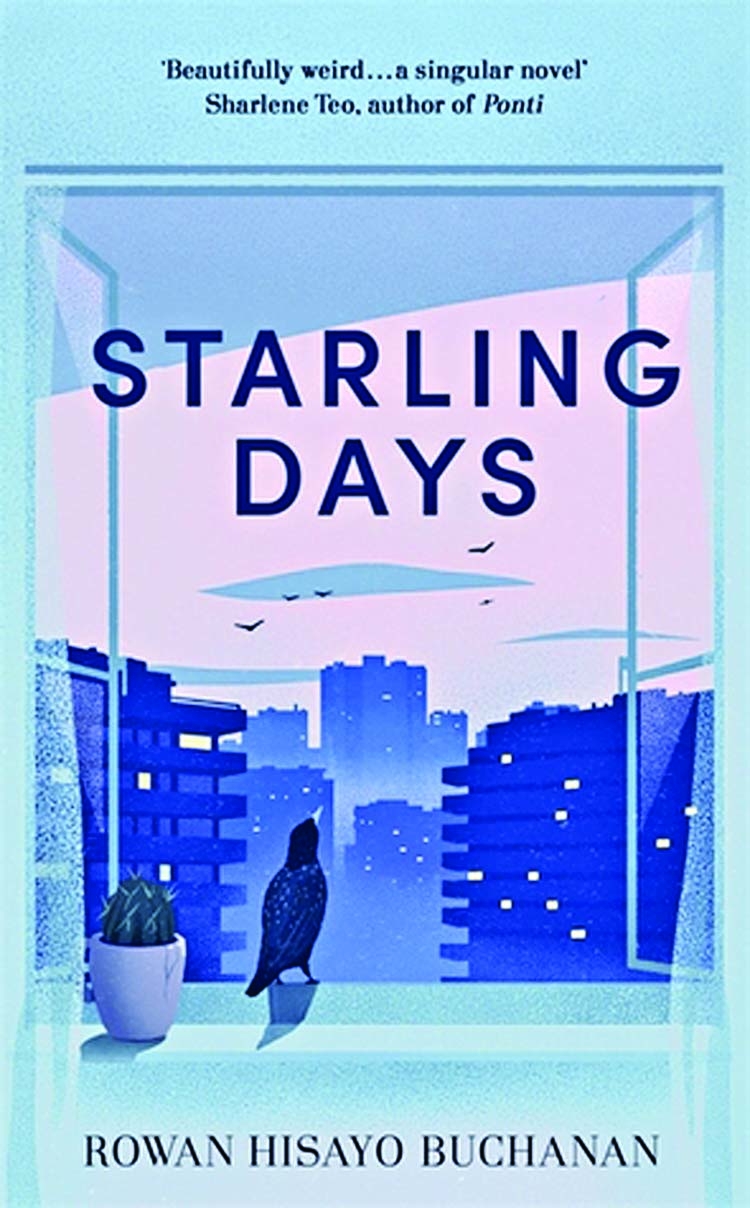Published: 01:04 AM, 04 August 2019
Starling Days: A novel about depression that doesn't depress
 Starling Days, Author: Rowan Hisayo Buchanan, Publisher: Sceptre, Price: £16.99
Starling Days, Author: Rowan Hisayo Buchanan, Publisher: Sceptre, Price: £16.99 Stuart Kelly
The classics never really go away. But, though there have been excellent novels by people like my colleague Allan Massie on the Roman Empire or Robert Harris on Cicero, (or I, Claudius by Robert Graves for that matter, or Gore Vidal's Julian), something rather different seems to be happening at present.
There are an awful lot of novels by women engaging with the mythology and history of the Graeco-Roman world. In the past few years I have read Margaret Atwood reimagining The Odyssey with the The Penelopiad, Pat Barker's reworking of The Iliad in The Silence Of The Girls, Madeline Miller on Circe and Achilles, Ali Smith's Boy Meets Girl, and Natalie Haynes with The Amber Fury, The Children Of Jocasta and A Thousand Ships. One has to wonder why, in this age of bread and circuses, tyrants and chancers, we are drawn back to literature thousands of years old.
Rowan Hisayo Buchanan is the latest in this playlist. Starling Days is a bit of a curate's egg of a novel, melding social commentary with internal dysfunction. But one of the central characters is a classicist, which provides the key to the lock of the story.
Mina is a thirtysomething living in New York, newly married, when she is found on the George Washington Bridge, shoeless, and looking into the water. Passing cops are rightly worried - the reader becomes more anxious when it transpires that such actions might not be the first time there has been a cause for concern.
Her husband, Oscar, who works in import/export (how invigorating to have a character who is not an artist or a novelist or a journalist) comes to help her home from hospital and decides that he should take her away for a while, to London. Oscar is the product of his father's one-night stand, and now works for him, while trying to learn Japanese properly.
Various plot contrivances mean that Oscar and Mina are rarely together, and then Oscar's best friend's sister Phoebe starts a friendship that might be something more with Mina, who has always said that she is bisexual.
This is a novel which is part comedy of manners and mostly tragedy. As one might expect, secrets are revealed and hidden. It is a strange admixture of the funny (it does involve a llama) and the profoundly serious. Mina is, we swiftly understand, depressive. But in her words: "She preferred crazy.
You weren't supposed to use that word, but she liked the z, the way it slid across the mouth like a knife." Or at one point Oscar muses "This was a weird thing to observe about your not-quite-stepmother. There was no word for the woman whose husband your mother had borrowed." This is slick stuff, if on occasion a little show-offy. I could imagine how Iris Murdoch or Muriel Spark would have kept this leaner and less ostentatious in its prose.
Mina is supposedly writing a monograph, and these parts are fascinating. She wants to look at female survivors in classical myth, given that most women meet ghastly ends. It chimes brilliantly with her own thoughts of suicide, as a counterpoint and a rebuke. She is - and this is very contemporary - contemptuous about studying the military history of Rome.
It allows the author to insert small narratives of heroines, while all the time reminding us that our heroine is struggling to see the end of her story. (I did wonder why there was no mention of Medea, perhaps the most problematic of Greek protagonists: monster and victor in one play). The allusions work well. They are also a kind of balance to Oscar's spreadsheets about craft beers.
The significant thing is that this is a novel that takes depression seriously, even if the prose sometimes froths and bubbles at its own cleverness. It does so by making the reader aware that Mina does not comprehend her own depression; she is, after all, supposed to be happy.
A few things, such as ovarian cysts and gender questions and father/son dynamics, do seem rather thrown into the mix, whereas a tighter focus on Mina's distress might have made a more significant novel.
It is affecting and melancholy, especially when quiet moments of happiness prove to be fleeting or illusory. But Mina's plight is made real, not least by the mention of the tattoos she has to conceal the scars from self-harm. In some ways that is a metaphor for the entire novel: writing over damage with beauty.
Buchanan is a novelist of talent and grace. This may be a kind of sophomore book - as Mina would grasp, sometimes you can try too hard. Nevertheless, it has wit and charm and a moral core. What she does next will be intriguing. Some of it is heartbreakingly sad; some of it is pure rom-com marshmallow, and even if the whole does not quite hang together, the parts are more than adequate to while away an afternoon. - Stuart Kelly
The writer is a book critic
The writer is a book critic




